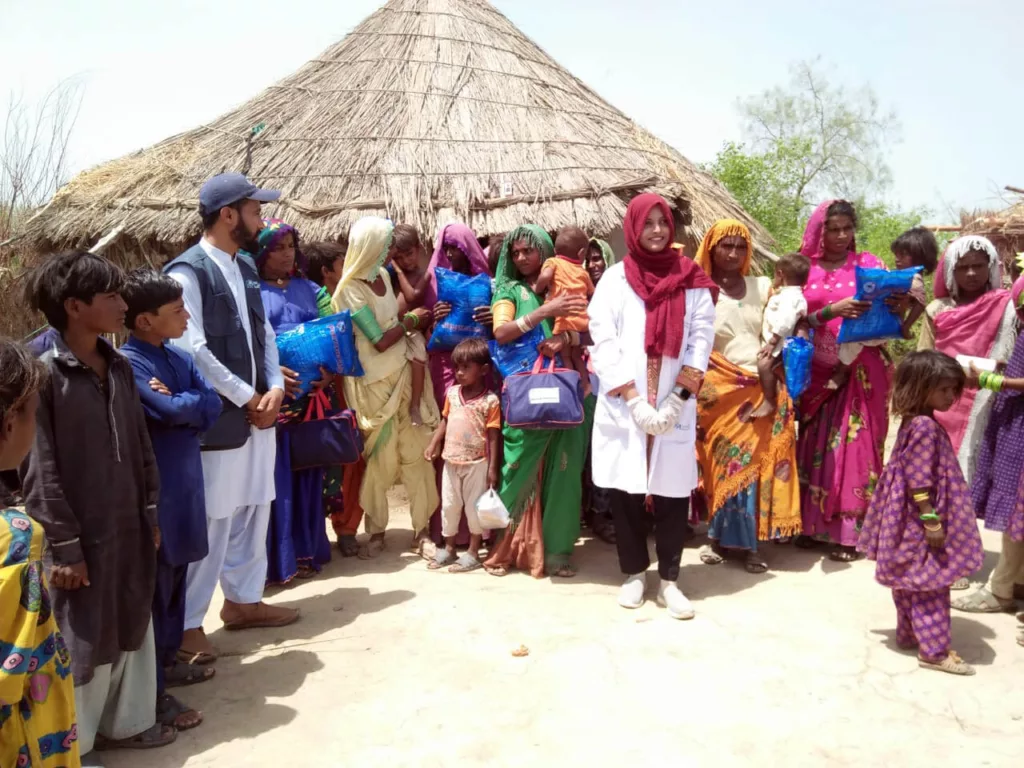Editor’s Note: This week is the second in a series of features written by Arshad Ali Sodhro, a community mobilizer in Pakistan, where International Medical Corps has worked since 1985. In 2022, the country experienced an extreme monsoon season, with weeks of heavy rainfall causing widespread flooding and landslides. Some 33 million people were affected—with more than 1,600 people killed and more than 2 million homes damaged or destroyed. Because of water system contamination and lack of access to clean drinking water, water-borne diseases, respiratory tract infections, skin infections and malaria increased. International Medical Corps has been providing essential medicines and medical supplies to treat these illnesses, in addition to providing water purification tablets.
As Arshad navigates this reality as a community mobilizer, he writes about what he witnesses on the ground every day. This week, he helps connect pregnant women with needed services and supplies.
It has been my duty to travel with my team to different flood-affected areas of Pakistan, where we work to mobilize the community and provide essential support. I would like to share a heartwarming story that I witnessed during my time in Jamshoro district.
In the middle of the flood-stricken region, there is a small town called Kotai Chandia, nestled along the banks of the Indus River. This town is home to many underprivileged families who endured the hardships brought about by the devastating monsoon flooding in 2022. Since then, International Medical Corps and its mobile medical teams have tirelessly worked to provide them with essential medical assistance and unwavering support.
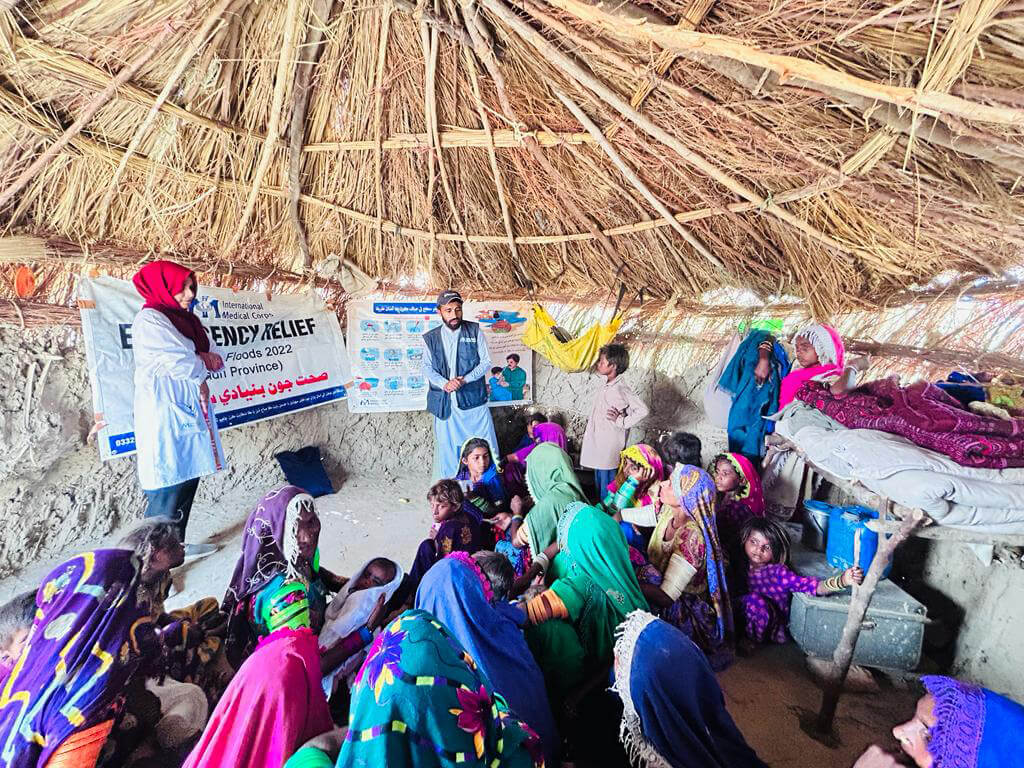
As a passionate community mobilizer, I worked diligently alongside my International Medical Corps team in Jamshoro. One of our key initiatives involved providing comprehensive delivery kits to pregnant women, ensuring that they had the necessary items for safe and successful childbirth. We also monitored the health of expectant mothers through regular visits, providing vital medicines and offering compassionate counseling.
Now, let me introduce you to Sapa and Jonjhi Bai—neighbors living on the banks of the Indus River. Because both women were expecting babies, they were among the families who received delivery kits and medical support from International Medical Corps in their village. Over several months, our teams followed up with them, providing medication and support during their journey toward parenthood.
Recently, our teams returned to the village and were overjoyed to witness the miracle of life: Sapa and Jonjhi Bai had both welcomed beautiful and healthy babies into the world. Dr. Nimra Sheikh, a compassionate and skilled medical officer from our organization, conducted a thorough checkup to ensure the well-being of the mothers and newborns. She provided necessary medicines and offered guidance and support during this critical time.
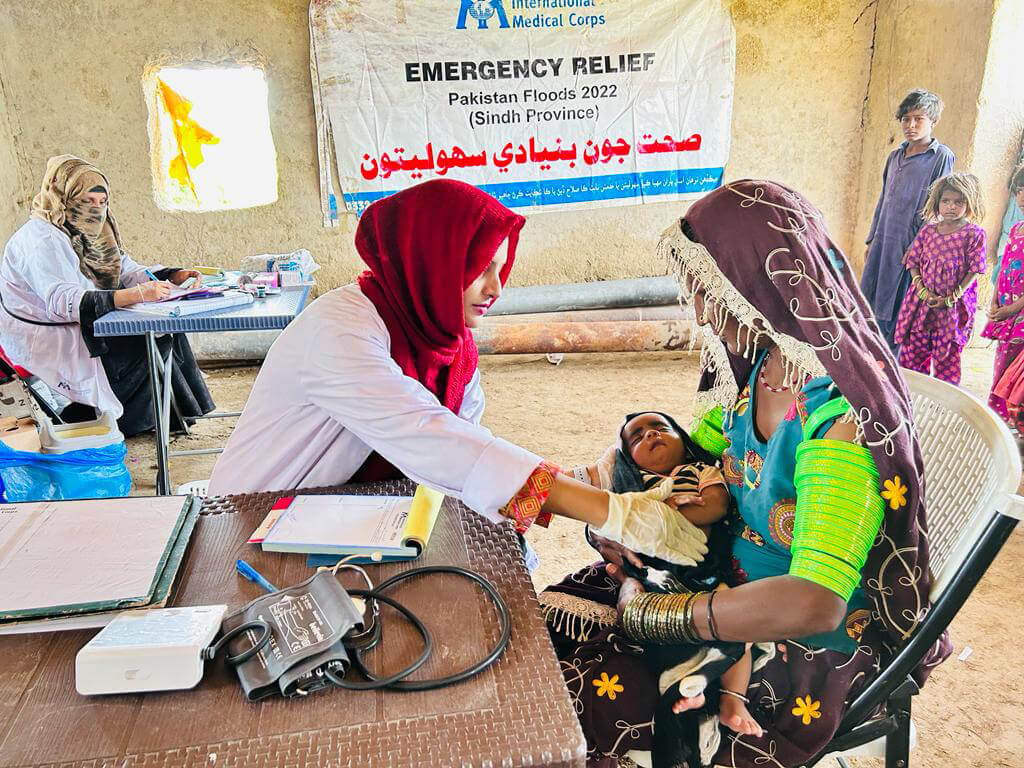
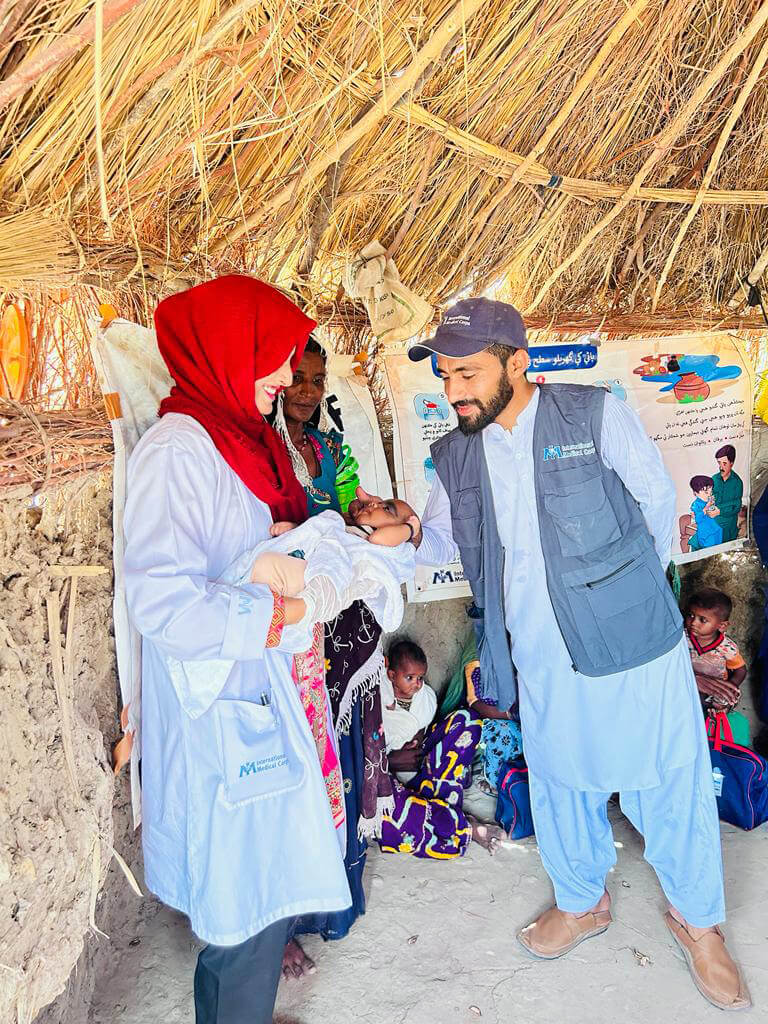
Seeing the smiles on Sapa and Jonjhi Bai’s faces as they held their babies, I couldn’t help but feel an overwhelming sense of fulfillment. Knowing that our efforts had made a positive impact on their lives filled me with immense joy.
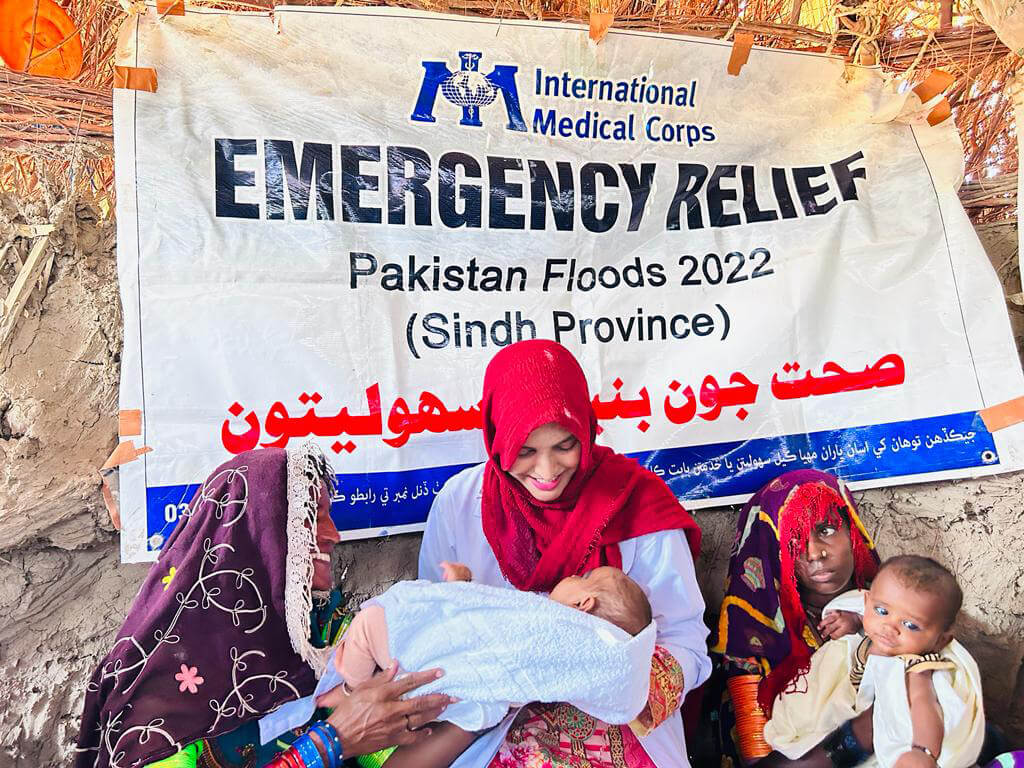
This story is just one example of the incredible impact that International Medical Corps has had in changing lives in flood-affected areas of Pakistan. As a community mobilizer, I am proud to be a part of this organization and to witness firsthand the transformation and hope we bring to communities in need. With each passing day, we continue to work tirelessly, ensuring that our efforts reach those who need them the most, leaving no one behind.
